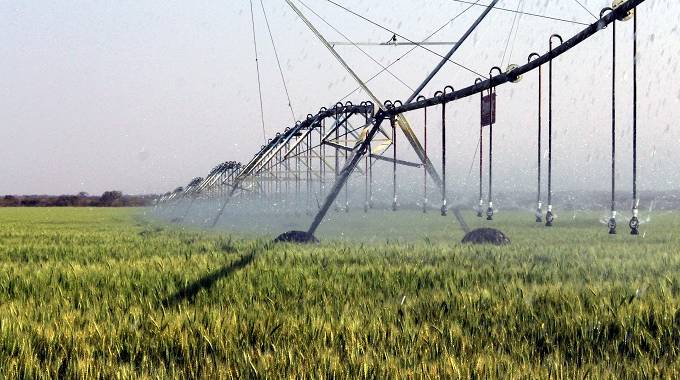
Farmers are now busy planting winter wheat in a season that must mark a turning point in the production of the cereal given the strong Government support this year.
For many years, wheat output has been too small to meet national consumption needs. Reasons for this are many, but the biggest one has been erratic electricity supply which disrupted farmers’ irrigation cycles. As wheat is grown in winter in our country and not in summer when rains are plentiful, failure for a farmer to irrigate the crop means failure.
This year, the Government is running a support programme which promises to beat similar initiatives implemented in previous seasons.
Last month the Government announced that it had set a target of 85 000 hectares under wheat this season, with a projected national harvest of 416 000 tonnes. If the targeted harvest is achieved, the country would have met its yearly wheat requirement of 400 000 tonnes. This would yield a big saving for the country as there would be no need to spend scarce foreign currency importing wheat.
About 70 000 hectares of the total land to be planted under wheat under the $2,7 billion Smart Agriculture Programme this year, will be financed by Government after securing a financial package from a local bank. The private sector will, through contract farming, finance the growing of wheat on an additional 15 000 hectares.
The Government has also guaranteed uninterrupted electricity supply to the clusters of farmers involved in this year’s wheat production initiative.
Participating farmers should thus, be able to irrigate throughout the season.
In addition, it has been established that although the 2019-20 growing season was characterised by erratic and late rains, dams in the regions selected to be involved in wheat production this winter were 68 percent full last month whereas the national average was 55 percent.
Also, to facilitate decision making on the part of farmers, the Government has announced a pre-planting winter wheat producer price of $14 143 per tonne which is subject to review in line with changes in input prices using a cost plus 20 percent margin price to ensure prices remain attractive.
In initiating the Smart Agriculture Programme, identifying participating farmers, delivering the necessary inputs and announcing the pre-planting producer price, the Government got the systems moving very timeously. We therefore, are hopeful that farmers had all they need to be able to start working the land at the correct time.
As noted earlier, a reliable provision of electricity is crucial to enable farmers to run their irrigation cycles as needed. The past few weeks have been broadly good in terms of power supply because demand for it in the industrial sector has been low amid the lockdown. With industry at a standstill thus utilising little amounts of power, Zesa has been able to supply the country with electricity more reliably.
However, with the easing of the lockdown resulting in more factories and businesses resuming operations, demand for electricity should start picking up. In addition, winter is approaching, a time of the year when demand for electricity for heating traditionally picks up.
It is good that winter is approaching and industry is resuming operations a few weeks after Zesa paid off its debt to its biggest supplier in the region, Eskom of South Africa. The liquidation of the debt opens doors for Zesa to negotiate a new deal for resumption of electricity imports from Eskom.
Work at Zesa must be in that direction now seeing that conditions in the country now demand more electricity with the lockdown being relaxed and the winter wheat programme beginning in earnest.
This winter wheat season will be a fruitful one, we are confident. Systems were put in motion early enough; water in relevant areas was found to be enough to last through the winter while conditions are broadly in place to ensure electricity availability. We urge the Government to ensure that all these enabling elements are in place throughout the growing season.
This enabling environment is critical but it can count for nothing if the farmers on the ground don’t rise to the occasion. They, we implore them, must work the land in a manner they must. If they meet any challenges they know which door to knock on for speedy corrective action to be made.
Let us not forget – and this is equally important – that harvest time comes in the next three to four months. Wheat tends to be grown by commercial farmers who have irrigation capacity and put substantial pieces of their lands under the crop. Because they work on a commercial scale, manual reaping of wheat is out of question so they would require combine harvesters to do so. However, this piece of machinery is expensive as such not many farmers own one. To get round the challenge farmers share them. For the end of the season to be as good as its beginning, we must be now securing enough combine harvesters and enough diesel to drive them.
